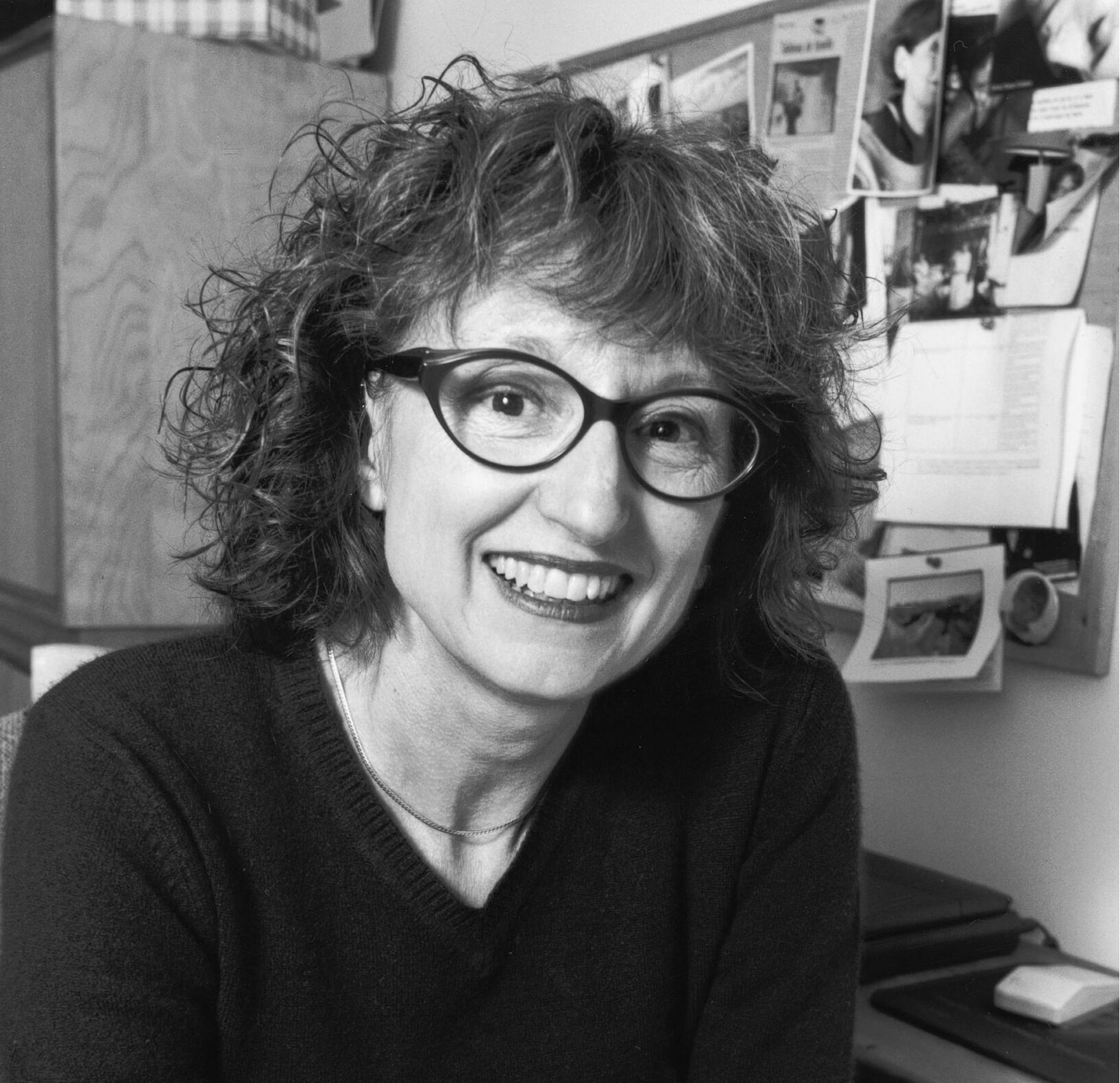NFB congratulates filmmaker Mireille Dansereau, winner of the 2022 Albert Tessier Award
PRESS RELEASE
30/11/2022

Mireille Dansereau. Photo: Caroline Hayeur for the NFB.
November 30, 2022 – Montreal – National Film Board of Canada (NFB)
The National Film Board of Canada (NFB) would like to congratulate Quebec women’s film pioneer Mireille Dansereau on winning the 2022 Albert Tessier Award. One of the 16 Prix du Québec handed out each year, the Albert Tessier Award is the highest honour in Quebec cinema. It celebrates Ms. Dansereau’s lifetime of rich artistic contributions to Quebec film. The director, producer, screenwriter and editor will receive her award today at 5:30 p.m. during a ceremony at Palais Montcalm in Quebec City.
Quote
“The NFB welcomes the awarding of this prestigious honour to a filmmaker who has been sharing her unique and unapologetically feminine perspective on personal and societal issues for the past 55 years. Through her powerful, wide-ranging and always engaged work in both fiction and documentary film, Mireille Dansereau has paved the way for new generations of female directors.” – Suzanne Guèvremont, Government Film Commissioner and Chairperson of the NFB
Mireille Dansereau’s career highlights
Early years
- After studying dance for 18 years, Mireille Dansereau completed a Bachelor of Arts at the Université de Montréal. In 1967, she embarked on her film career with the short Moi un jour, which was screened at Expo 67 in Montreal.
- She went on to the Royal College of Art in London, United Kingdom, where her film Compromise won an award in 1969.
- After returning to Quebec, she co-founded Association coopérative de productions audiovisuelles (ACPAV). This audiovisual cooperative produced her multiple-award-winning film La vie rêvée (1972), Quebec’s first feature directed by a woman.
NFB work in the 1970s
- Invited by Anne Claire Poirier to join the En tant que femmes program at the NFB, Ms. Dansereau directed J’me marie, j’me marie pas (1973), which follows four female artists as they discuss the challenges of balancing marriage, family and creativity.
- Famille et variations, a documentary on the evolution of the family in Quebec society, followed in 1977.
Fiction films in the private sector
- Her feature L’arrache-cœur (1979) starred Louise Marleau, who won the Montreal World Film Festival award for Best Actress for her role. The film examines the mother-daughter relationship, an important theme in Ms. Dansereau’s work.
- Le sourd dans la ville (1987), a feature film based on the novel by Marie-Claire Blais, was shown and received a mention at the prestigious Venice Film Festival.
Back to documentaries and to the NFB
- In 1992, she directed Entre elle et moi, a documentary about her mother, Madeleine Dansereau, who created the Ordre national du Québec medal and is regarded as Quebec’s first female jeweller.
- In 1994 at the NFB, she directed Les seins dans la tête. Produced by Studio F – Regards des femmes, this documentary examined the role breasts play in the identity of women and, by extension, women’s relationships with their bodies.
- Her next documentary, Les cheveux en quatre (1997), took another look at the theme of women’s bodies. It was produced in the private sector.
- For Dark Intent (2000), Ms. Dansereau returned to the NFB to direct a film that combined drama, documentary and animation to talk about youth suicide.
- Her most recent film, Vu pas vue (2018), again addressed the theme of women’s bodies.
Her filmography includes more than 20 fiction and documentary short and feature films, as well as several experimental films.
Where to watch
- One of Mireille Dansereau’s NFB-produced films (Dark Intent) is available in an English version and can be viewed here.
- The filmmaker is profiled in Denys Desjardins’ short documentary Making Movie History: The Women.
– 30 –
French version here | Version française ici.
Media Relations
-
About the NFB
Founded in 1939, the National Film Board of Canada (NFB) is a one-of-a-kind producer, co-producer and distributor of engaging, relevant and innovative documentary and animated films. As a talent incubator, it is one of the world’s leading creative centres. The NFB has enabled Canadians to tell and hear each other’s stories for over eight decades, and its films are a reliable and accessible educational resource. The NFB is also recognized around the world for its expertise in preservation and conservation, and for its rich and vibrant collection of works, which form a pillar of Canada’s cultural heritage. To date, the NFB has produced more than 14,000 works, 7,000 of which can be streamed free of charge at nfb.ca. The NFB and its productions and co-productions have earned over 7,000 awards, including 11 Oscars and an Honorary Academy Award for overall excellence in cinema.